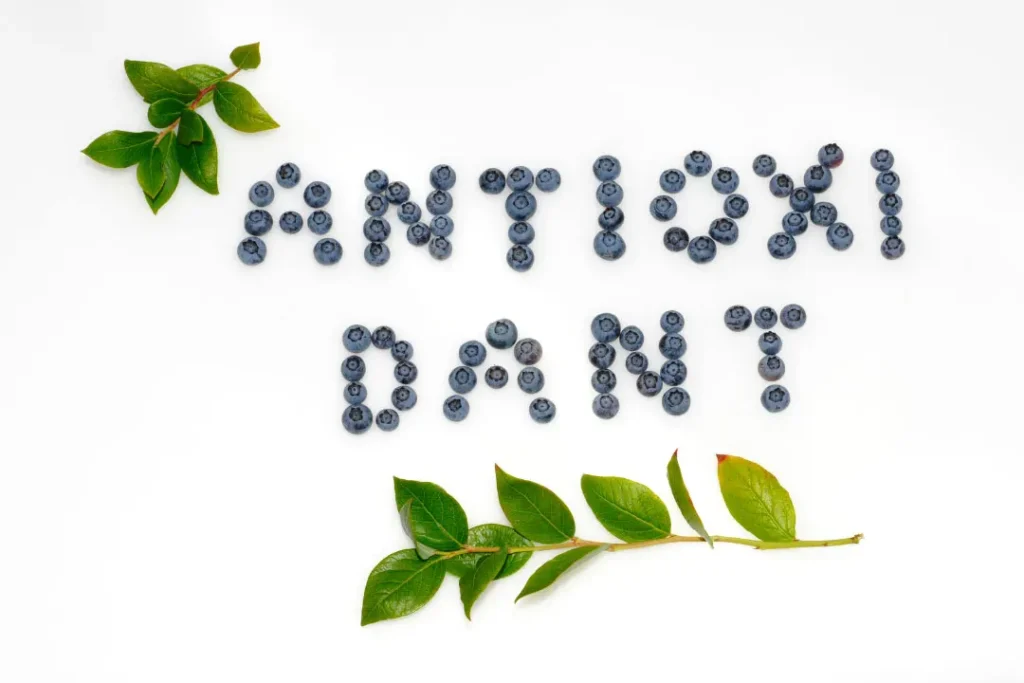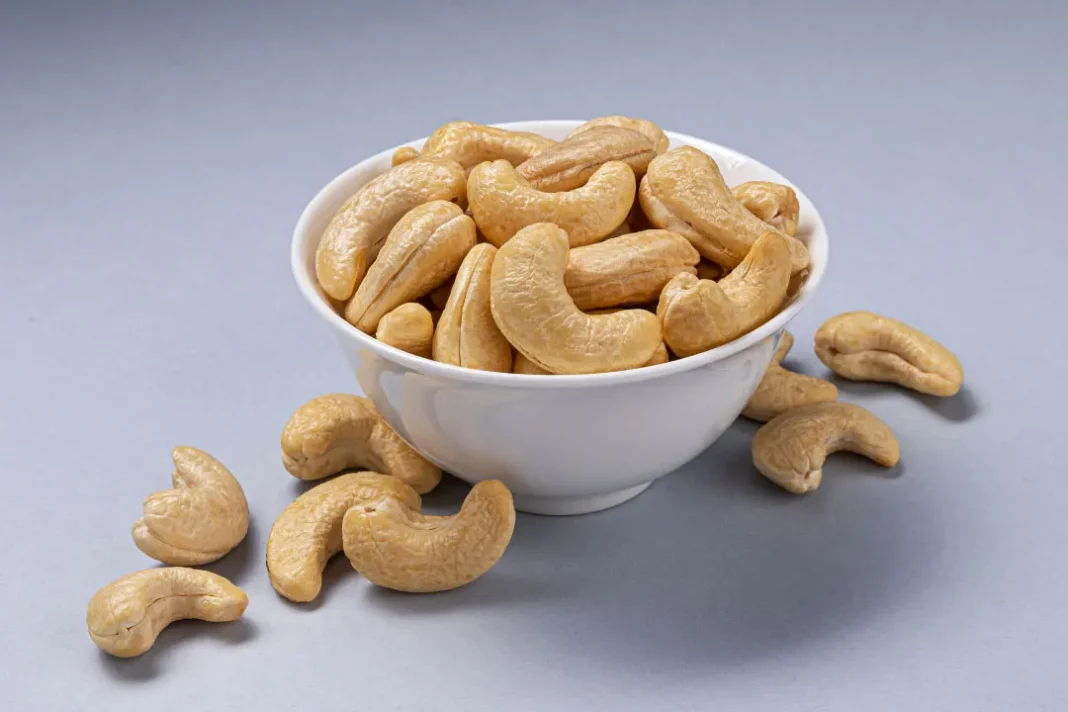Snacking is a ubiquitous habit in the lives of many people, offering quick and satisfying bites amidst busy routines. According to data from a study conducted by the National Health and Nutrition Examination Survey (NHANES), 91% of people in the United States report snacking daily. However, the real challenge lies in selecting snacks that are not only delicious but also nutritious.
Cashews are often selected as a healthy snack option due to their nutritional density. We’ll compare two quality cashew products: Whole Foods Cashews and Healthy Truth Organic Raw Sprouted Salted Cashews, to find out which is the better option.
You May Also Like:
The Best Herbs for Liver Cleanse
Which herbs help reduce inflammation?
Nuts About Cashews: Whole Foods Cashews vs Healthy Truth Organic Raw Sprouted Salted Cashews is an original (PlantBasedHealthNews) article.
Cashews:
A nutrient-rich nut
Cashews, scientifically known as Anacardium occidentale, are the kidney-shaped seeds of the cashew apple, a tropical fruit native to Brazil but now cultivated in many parts of the world, particularly in India, Vietnam, and Africa. These nuts have gained popularity for their rich, creamy texture and versatile culinary uses. Beyond this, cashews also offer a range of health benefits.
Cashews are a nutrient-dense snack packed with essential vitamins, minerals, and healthy fats. They are an excellent source of monounsaturated fats, specifically oleic acid, which is also found in olive oil. Monounsaturated fats are known for their heart-healthy properties, as they can help lower bad cholesterol levels and reduce the risk of heart disease.
One of the standout health benefits of cashews is their impressive mineral content. These nuts are rich in magnesium, which plays a crucial role in various bodily functions, including nerve and muscle function, bone health, and blood sugar regulation. Additionally, cashews are a good source of copper, which aids in energy production, antioxidant defense, and the formation of collagen and red blood cells.
Cashews are also brimming with essential vitamins, such as vitamin K, which supports blood clotting and bone health, and vitamin B6, which is important for brain development and function. Moreover, cashews provide a dose of plant-based protein, making them a valuable addition to vegetarian and vegan diets.
Furthermore, cashews contain a range of bioactive compounds, including antioxidants like zeaxanthin and lutein, which support eye health by protecting against oxidative damage and age-related macular degeneration. The presence of these antioxidants may also contribute to cashews’ overall anti-inflammatory and disease-fighting properties.
Whole Foods Cashews vs Healthy Truth Organic Raw Sprouted Salted Cashews:
Potency and bioavailability
Potency refers to the concentration of beneficial compounds in a product, while bioavailability measures how effectively these compounds are absorbed by the body. In this category, Healthy Truth‘s Organic Raw Sprouted Salted Cashews are superior due to the sprouting process they undergo.
The sprouting process is a transformation that occurs when a dormant seed, such as a nut, begins to germinate. This natural process, triggered by moisture and favorable conditions, results in several notable changes within the nut, rendering it not only more flavorful but also significantly healthier.
When a nut is sprouted, it undergoes a series of biochemical changes that unlock its full nutritional potential. Sprouting activates enzymes within the nut that break down complex compounds, such as phytic acid and tannins. These compounds can interfere with the body’s ability to absorb essential minerals like calcium, magnesium, and iron. Through sprouting, these inhibitors are neutralized, making the minerals more bioavailable to our bodies.
Another notable transformation during sprouting is the increase in nutrient content. As the seed prepares to grow into a new plant, it mobilizes its energy reserves, resulting in a surge of vitamins, minerals, and antioxidants. For example, the levels of certain B vitamins, like folate and riboflavin, tend to rise during sprouting. This enhanced nutrient density makes sprouted nuts not only more nutritious but also easier for our bodies to digest and absorb.
Sprouting has also been linked to a reduction in anti-nutrients, substances that can hinder nutrient absorption and digestion. These anti-nutrients, such as lectins and phytic acid, are partially broken down during the sprouting process, mitigating their negative impact on nutrient utilization. This reduction in anti-nutrients is particularly beneficial for people with sensitive digestive systems, as it can make nuts and seeds easier to digest and less likely to cause discomfort.
Furthermore, sprouting often leads to an improvement in taste and texture. Nuts that have undergone sprouting tend to be milder in flavor, less bitter, and have a pleasantly crunchy texture. This makes them more appealing to the palate and enhances their versatility in various culinary applications, from snacking to baking.
Whole Foods Cashews, while still nutritious, don’t undergo this sprouting process, placing them at a disadvantage in terms of potency and bioavailability.

Whole Foods Cashews vs Healthy Truth Organic Raw Sprouted Salted Cashews:
Sustainability
Both Healthy Truth Organic Raw Sprouted Salted Cashews and Whole Foods Cashews are great choices when it comes to sustainable practices, primarily due to their USDA-certified organic status. The term “USDA-certified organic” represents a gold standard in product quality, sustainability, and ethical sourcing within the food industry.
To earn the USDA organic certification, products must adhere to stringent guidelines set by the United States Department of Agriculture (USDA). These guidelines encompass various aspects of production, from soil management and pest control to the use of synthetic chemicals and genetic engineering. Organic farming practices prioritize sustainability by emphasizing natural processes, biodiversity, and ecological balance. This means avoiding the use of synthetic pesticides, herbicides, and genetically modified organisms (GMOs).
For cashew products like Healthy Truth’s Organic Raw Sprouted Salted Cashews and Whole Foods Cashews, the USDA-certified organic label signifies a commitment to sourcing cashews that are grown without the use of harmful chemicals and genetically modified seeds. This not only benefits the environment by reducing the ecological footprint but also ensures that the end product is free from pesticide residues and GMOs, which can have potential health concerns.
USDA-certified organic also extends to sustainability in terms of ethical practices. Organic farming often incorporates fair labor practices, ensuring that workers are treated fairly and paid a living wage. This ethical aspect aligns with the principles of social responsibility, making sure that the cashew production process benefits both the environment and the people involved in its cultivation.
Furthermore, the USDA organic certification involves rigorous inspections and regular audits by accredited third-party certifying agencies. These audits ensure that the organic standards are met and maintained throughout the entire production chain, from farm to packaging. This level of oversight provides consumers with confidence in the product’s quality and authenticity.
Whole Foods Cashews vs. Healthy Truth Organic Raw Sprouted Salted Cashews:
Added ingredients
Healthy Truth includes extra virgin olive oil in their cashews, while Whole Foods roasts their cashews using expeller-pressed canola oil. This gives Healthy Truth an advantage in terms of an overall healthier product.
Expeller-pressed canola oil has become a common cooking oil in many households due to its perceived health benefits and neutral flavor. However, it’s essential to scrutinize the potential drawbacks associated with using this oil, especially when roasting nuts or incorporating it into your diet.
One of the primary concerns with expeller-pressed canola oil is its omega-6 fatty acid content. While omega-6 fatty acids are essential for our health, an excess of them can lead to an unhealthy imbalance in the omega-6 to omega-3 ratio. This imbalance is associated with chronic inflammation, which is a contributing factor to various health issues, including heart disease, arthritis, and obesity. Expeller-pressed canola oil contains a high proportion of omega-6 fatty acids, which can exacerbate this imbalance when consumed in excess.
Additionally, canola oil undergoes a refining process that often involves high heat and chemical solvents. This process can strip away some of the oil’s natural antioxidants and beneficial compounds, leaving behind a less nutritious end product. In contrast, olive oil is typically cold-pressed, preserving its natural antioxidants and phytonutrients. These antioxidants, such as vitamin E and polyphenols, offer protective benefits against oxidative stress and inflammation.
Olive oil’s health benefits extend beyond its fatty acid profile. It is renowned for its high monounsaturated fat content, primarily oleic acid. Monounsaturated fats are associated with heart health, as they can help reduce bad cholesterol levels and improve overall cardiovascular function. Olive oil also contains various bioactive compounds, such as oleocanthal and oleuropein, which have been linked to anti-inflammatory and anti-cancer properties.
When it comes to roasting nuts or cooking in general, olive oil is a preferable option due to its superior stability at high temperatures. The smoke point of olive oil, especially extra virgin olive oil, is relatively high, making it suitable for roasting without breaking down and producing harmful compounds. On the other hand, canola oil’s smoke point is lower, and it can deteriorate when exposed to high heat, potentially releasing harmful free radicals and trans fats.

Whole Foods Cashews vs. Healthy Truth Organic Raw Sprouted Salted Cashews:
Pricing
Healthy Truth offers a small snack-sized version of its product at the low price of $3.99 for a 1.4-ounce bag. You can also purchase a larger 8-ounce bag for $14.49. Whole Foods Cashews are slightly cheaper, coming in at around $10 for a 10-ounce bag. However, when you consider the quality of Healthy Truth’s cashews, the difference of a few dollars becomes less significant.
Whole Foods Cashews vs. Healthy Truth Organic Raw Sprouted Salted Cashews:
Return policy
No matter how well a product is made, there’s always the possibility of receiving a damaged or unsatisfactory item. In such cases, the return policy becomes crucial. Both Whole Foods and Healthy Truth have customer-friendly return policies.
Healthy Truth allows returns within 30 days of purchase, whereas Whole Foods has a more extended window of 90 days, giving them the edge in this category.
Whole Foods Cashews vs. Healthy Truth Organic Raw Sprouted Salted Cashews:
Which is better?
While Whole Foods Cashews are undoubtedly a great product, Healthy Truth Organic Raw Sprouted Salted Cashews stands out as the superior choice for several reasons. Healthy Truth’s incorporation of the sprouting process elevates their cashews to a higher nutritional level, enhancing their digestibility, nutrient content, and overall health benefits. Furthermore, the addition of olive oil not only contributes to the flavor of the product but also brings with it the heart-healthy benefits of monounsaturated fats. The USDA-certified organic status of Healthy Truth’s cashews ensures that they meet rigorous standards for purity and sustainable farming practices. In light of these factors, Healthy Truth Organic Raw Sprouted Salted Cashews emerge as the clear winner.

The many benefits of nuts
Beyond cashews, incorporating nuts in general into your diet offers an array of benefits that contribute to overall well-being. Nuts, despite their small size, pack a powerful nutritional punch that makes them a valuable addition to any balanced diet.
Nuts are a superb source of heart-healthy fats, particularly monounsaturated and polyunsaturated fats. These fats have been linked to reduced LDL (“bad”) cholesterol levels, which can lower the risk of heart disease. Consuming nuts regularly has shown promising results in studies, indicating a protective effect on cardiovascular health. Moreover, the unsaturated fats in nuts contribute to improved blood vessel function and reduced inflammation within the body, further promoting heart health.
Nuts are also a treasure trove of essential nutrients, including vitamins, minerals, and antioxidants. They are rich in vitamin E, which is crucial for skin health and acts as a potent antioxidant, protecting cells from oxidative damage. Additionally, nuts provide valuable minerals like magnesium and potassium, which are vital for nerve function, muscle contraction, and maintaining healthy blood pressure levels.
Fiber is another significant asset of nuts. A handful of nuts can provide a substantial dose of dietary fiber, which supports digestive health, helps manage blood sugar levels, and contributes to a feeling of fullness and satiety. This fiber content makes nuts an excellent choice for those looking to curb their appetite and maintain a healthy weight.
Furthermore, the antioxidants found in nuts, such as flavonoids and polyphenols, have been linked to a reduced risk of chronic diseases like cancer and Alzheimer’s. These compounds help combat oxidative stress and inflammation within the body, protecting cells from damage and supporting overall health.
It’s worth noting that not all nuts have the same nutritional profile, and each variety boasts a unique blend of nutrients. For example, almonds are celebrated for their high vitamin E content, walnuts stand out for their omega-3 fatty acids, and Brazil nuts are renowned for their selenium content, which is essential for thyroid health.
With high-quality nut options like Whole Foods Cashews and Healthy Truth Organic Raw Sprouted Salted Cashews, snacking won’t ruin your diet; it can enhance it.

Further Reading:
Harvard T.H. Chan: Are Anti-Nutrients Harmful?
NHANES: What We Eat in America
National Library of Medicine: Health Benefits of Nut Consumption
Real Simple: Health Benefits of Cashews: Protein, Good Fats, Fiber
The New York Times: Is Olive Oil Good For You? What Experts Say About Health Benefits
Important Note: The information contained in this article is for general informational purposes only, and should not be construed as health or medical advice, nor is it intended to diagnose, prevent, treat, or cure any disease or health condition. Before embarking on any diet, fitness regimen, or program of nutritional supplementation, it is advisable to consult your healthcare professional in order to determine its safety and probable efficacy in terms of your individual state of health.
Regarding Nutritional Supplements Or Other Non-Prescription Health Products: If any nutritional supplements or other non-prescription health products are mentioned in the foregoing article, any claims or statements made about them have not been evaluated by the U.S. Food and Drug Administration, and such nutritional supplements or other health products are not intended to diagnose, treat, cure, or prevent any disease.
